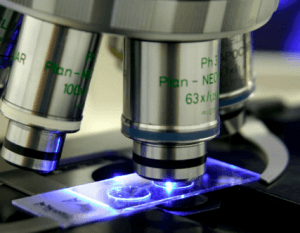Government to allocate 1% of GDP to support research and scientific activities
 The Government has announced that it will dedicate a minimum of one per cent of the country’s Gross Domestic Product (GDP) to supporting research, science, technology, and innovative activities.
The Government has announced that it will dedicate a minimum of one per cent of the country’s Gross Domestic Product (GDP) to supporting research, science, technology, and innovative activities.
To that end, the government was putting measures in place to establish a National Research Fund, which would be accessible to researchers and all potential innovators.
Currently, the Fund Bill has been passed and the government is working on the regulatory framework for operationalising the fund.
Dr Eric Nkansah, Technical Advisor and Director in charge of Tertiary Education at the Ministry of Education, announced this at the opening ceremony of the maiden African Mathematical School in Mathematical Methods in Analysis and Probability in Accra.
The two-week workshop, organised by the African Institute for Mathematical Sciences, Ghana (AIMS Ghana) aimed at equipping participants with relevant skills on stochastic analysis, the analysis of partial differential equations, and related numerical methods that can be employed.
Launched on Monday, 16th August 2021, the two-week workshop brought together over 35 mathematics researchers from universities across Africa, which provides a platform for them to network and interact, to learn about cutting-edge research latest mathematical tools, and to share their ideas and experiences with world-renowned researchers and professors.
The summer school is expected to enrich multi-disciplinary research between different departments, schools in Ghana, Africa, and among Africans, as well as across research institutions worldwide.
Dr Nkansah re-affirmed the government’s unalloyed commitment towards promoting and advancing the study of Science, Technology, Engineering, and Mathematics (STEM) from the basic schools to the tertiary level.
He expressed the government’s ambition of partnering with AIMS Ghana- a Centre of excellence for post-graduate training in mathematical sciences and research- towards training between 50 and 100 PhDs in the next five years.
“The hope of Africa lies in building a solid mathematics research foundation in our education. As Ghana and Africa strive to satisfy the socio-economic needs of the people, we need to anchor our development on the pinnacles of STEM education and research, training and developing young African mathematicians who will lead Africa in scientific breakthroughs,” Dr Nkansah stated.
He reiterated the government’s vision of forming a strategic partnership with AIMS Ghana towards establishing a female STEM Senior High School soon.
He believed that the summer school would increase the stock of knowledge of participants and help unlock the research capabilities of young researchers to make Ghana and the world a better place to live in.
In an interview with the Ghana News Agency at the sidelines of the workshop, Professor Olivier Menoukeu Pamen, the German Research Chair in Mathematics and its Applications at AIMS Ghana who is also a Reader at the University of Liverpool, advocated the need for African governments to allocate more funding towards research.
He bemoaned the low level of research emanating from Africa, constituting about 2.5 per cent of global research output, with West Africa contributing less than 0.08%.
Prof. Franca Hoffmann, AIMS-Carnegie Research Chair in Data Science at Quantum Leap Africa, AIMS Rwanda, and a Professor at the University of Bonn, called for more exchange programmes between researchers in Africa and the global research community to share ideas and experiences on the latest scientific research models.
She advocated the need for brain circulation as opposed to brain drain.
Overall, with the right methodologies, focus, conducive environment, and efforts by governments and institutions, scientific talents impacting in significant ways the advancement of global human knowledge could emerge from the African continent.
Source: GNA
